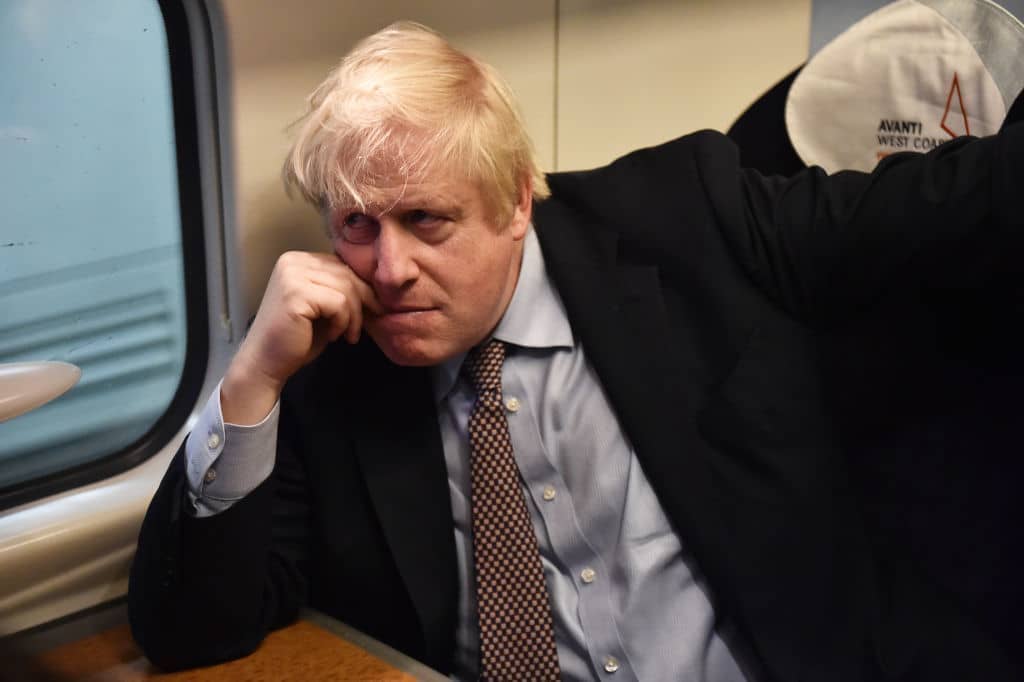Is the government’s approach to strikes and public sector pay too blunt? Today Boris Johnson and Rishi Sunak took the opportunity of the Cabinet meeting to underline ‘the importance of fiscal discipline’. The Chancellor told the meeting that ‘the government had responsibility to not take any action that would feed into inflationary pressures or reduce the Government’s ability to lower taxes in the future’. That’s a roundabout way of saying to ministers (and the public, given this part of the private meeting was briefed out) that he’s not budging on public sector pay increases. It is a far cry from the ‘high wage, high skill economy’ that the Prime Minister was promising just months ago at the Tory party conference.
The meeting also saw Johnson condemning the rail strikes, saying ‘the union barons need to sit down with Network Rail and the train companies, and get on with coming to a sensible compromise for the good of the British people and the rail workforce’. Government sources are reasonably happy with the way the first day of the industrial action has gone, given two years of working from home for the white collar population has blunted some of the effects of the first day. One says:
‘There is a productivity-driven fair settlement to be had. Talk of the government desiring a long series of attritional strikes to exhaust the RMT is nonsense.’
There is a risk the public won’t be as supportive as Johnson and co. think
There are two problems for the government, though. The first is the polling out this evening that the public does blame ministers for the rail strikes, despite their repeated assertions that it’s down to the unions and the network and train operators, not them.
Savanta ComRes released a survey that found a majority of voters – 58 per cent – think the rail strikes are justified, against 34 per cent who say they aren’t. But most strikingly, 66 per cent say the government hasn’t done enough to stop the strikes, with 61 per cent pointing the finger of blame directly at Transport Secretary Grant Shapps – and 57 per cent blaming Network Rail. The RMT is also criticised by 49 per cent. An Opinium poll for TalkTV found more of a split, with 41 per cent in favour and 42 per cent against.
The second is that it’s not just the rail sector where industrial action over pay and other conditions is an issue. Teachers, barristers and posties are also contemplating protests against the lack of wage rises to match inflation. And while it’s easy to point to some of the well-paid workers on the railways to dent public sympathy for those strikes, few think teachers are well-paid. The Opinium poll also found that 46 per cent of people are supportive of teachers striking, and 48 per cent of nurses and doctors (though they don’t like the idea of criminal barristers striking, presumably because most people assume they earn the same dizzy wages as their commercial colleagues). It is going to be much harder to hold the line on public sector workers like teachers.
But there are also fears that even the line on the rail strikes isn’t quite right. Robert Halfon, who has long pursued a ‘hug a trade unionist’ campaign, tells me that while he thinks the strikes are wrong and that the ‘union bosses have not covered themselves in glory in any shape or form’, there is a risk the public won’t be as supportive as Johnson and co. think. He said:
‘What might bring the public on board is if we can do something for the lower-paid railway workers like the ticket inspectors and security guards and other people who are not on the much bigger salaries that they’ve tended to focus on.’
Halfon was once known as the ‘most expensive MP in the Commons’ because his campaigns on fuel duty were so successful. He knows – as well as Sunak and Johnson do – that the pay line is going to be hard to maintain. Which is why they were so anxious to talk about it at Cabinet.
P.S. Halfon’s comments first appeared in my Evening Blend email, a free round up and analysis of all the day’s politics. Sign up here







Comments